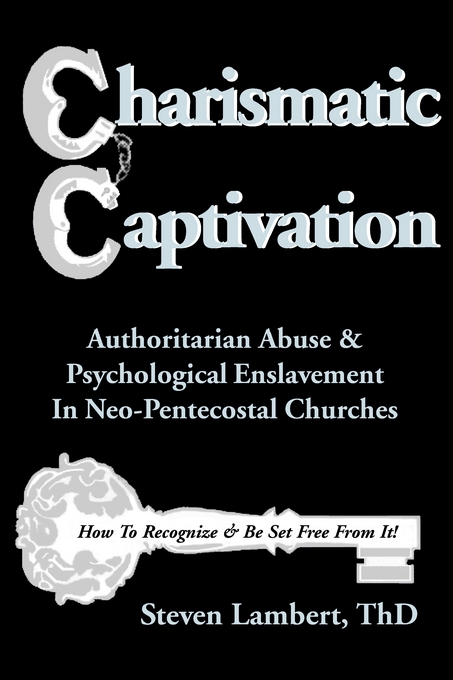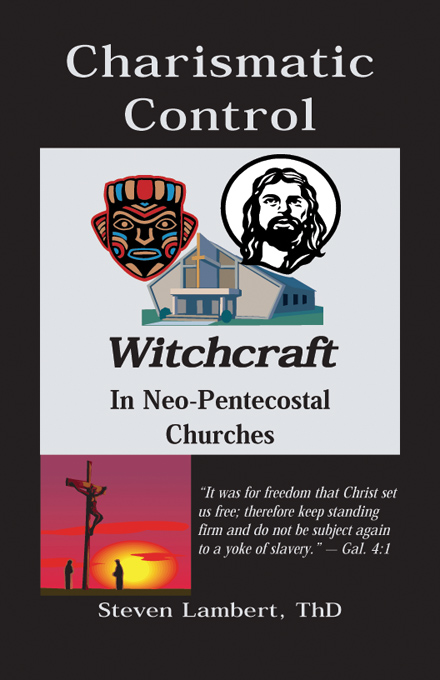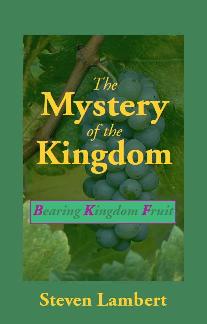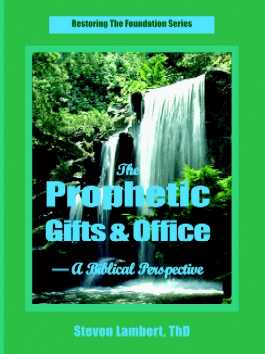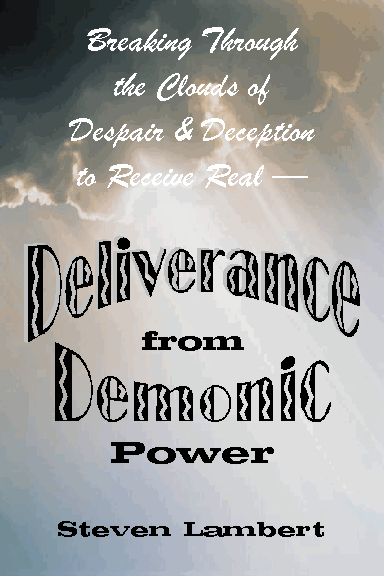Isaiah 42:9
Behold, the former things have come to pass,
Now I declare new things;
Before they spring forth I proclaim them to you.
Isaiah 43:18,19
Do not call to mind the former things,
Or ponder things of the past.
Behold, I will do something new,
Now it will spring forth;
Will you not be aware of it?
I will even make a roadway in the wilderness,
Rivers in the desert.
Isaiah 48:6-8
I proclaim to you new things from this time,
Even hidden things which you have not known.
They are created now and not long ago;
And before today you have not heard them,
So that you will not say, `Behold, I knew them.'
You have not heard, you have not known.
The above Scriptures indicate so clearly that our Father God is a God of new things! When it comes to paradigms and patterns, the fact of the matter is humans tend to be much more conservative than God, including with respect to the status quo, and indeed are often resistant to the change God wants to bring about in various aspects of our lives. God is the God of new things! He is forever breaking the molds and casting new ones. In the arena of the establishment of His Kingdom on Earth, He is constantly declaring "new things" before they spring forth.
God speaks In these passages about “new things." In the first, He says, “I declare new things” and that He proclaims them to us before they spring forth, which means, before they come into existence, or before the new things He is about to initiate show up in our lives. In the second, He proclaims, “I will do something new” in our lives. Then, in the third passage He declares that He proclaims new things, even things that have been hidden from us previously of which we had no knowledge or understanding, and that they are created at the moment He proclaims them and that they were non-existent prior to that moment, so that we cannot boast that we knew anything about them or even heard about them prior to their coming into existence in our lives.
God speaks of new things repeatedly in His Word: new wine, new moons, new growth, new things, new strength, new song, new name, new heart, new spirit, new covenant, new tongues, new garment, new commandment, new creature, new self, new man, new and living way, new heavens and new earth, New Jerusalem—just to name the most salient. He not only talks about new things, but also, as alluded to previously, about re-newing things, meaning He takes old, obsolete, outdated, outmoded, passé things and somehow transforms them into new. Again, all this tells me that new things are God Things!
Thus, we can see from these and many other passages of Scripture that God specializes in new things! Declaring new things is something God does recurrently or repeatedly. Moreover, whenever God says, “I will” as He does in the second passage, we can safely deduce that whatever it is that He says He will do is indeed His will, since He never does anything contrary to His will. Thus, we can be assured that decreeing, doing, and bringing forth new things in our lives is within God’s will. The question is then: why are change and new things so contrary to our will as humans, generally speaking?
God specializes in declaring and doing new things! And, yet so many people specialize in old things or the status quo! God has an affinity for the new, and humans, by and large, have an aversion against it. In American culture especially, we venerate, if not idolatrize, the status quo. We like things to be as we have always known them to be in our lifetime. We dread and are threatened by the least prospect or semblance of change. We all but canonize the person who lived at the same house, woke up every morning at the same time, drank his morning cup of the same brand of coffee from the same coffee cup, made in the same pot, drove the same route to work and back to the same job, and ate the same few varieties of meals, on the same plates using the same silverware—for forty years! (Then, the irony of it all is that to that person who in his own world insisted on making time stand still, we pay tribute with the gift of a gold watch, as if he even has a need for a watch, since for him time already “is no more!”) Salt of the earth, grounded, good people, we call them. And, God help the preacher who dares to stand up before the congregation of the dying faithful and even suggest that something in the church needs to change or that it needs a transfusion with new blood.
We have almost a national obsession with preserving the memories of those and that which has passed, contemporaneous with such a barbaric contempt for the new that has yet to live that millions are unceremoniously murdered and their remains strewn about refuse landfills like discarded chicken parts and flushed through the sewers like human waste. We construct elaborate monuments to immortalize the dead. We spend billions of dollars on museums and such things as presidential libraries, Smithsonian Institutes, Halls of Fame of various genres to preserve memorabilia and memories of departed people and artifacts of passé cultures. Treasured “antiques” and venerated “historic” structures are valued many times higher than their modern counterparts. A plethora of books and magazines filling our national libraries and booksellers’ shelves are devoted exclusively to reminiscing nostalgically and longingly of days gone by, eras past. All this underscores our collective proclivity of living in the past.
God declares that He will shake everything that can be shaken, as of created things, in order that only those things that cannot be shaken shall remain (Heb. 12:25-29). Yet, people shake in terror at the mere thought of those things that can be shaken being removed and the treasured status quo changing!
Why is that? Two words, insecurity and idolatry! We make huge investments in the status quo. We are vested in what has been, what has already transpired, rather than in what will be and what is becoming. Without even realizing it, our security, our hope, our faith, all become wrapped up in the status quo—our own world we have worked so hard to create. It gets to the place, though few ever see it, where we are trusting in that status quo— the world we have been the creator of—rather than God, the true Creator! It takes little thought to see that that is the very essence of idolatry. Only the deity we are exulting is not some wooden or stone object representing some strange, mythological false god, as do the heathen of foreign lands, but rather it is ourselves, as the "creator" of the world we have fashioned and which we are venerating. So, the form of our idolatry is literally that of self-deification.
And, then along comes God, and says, “Behold, I will do a new thing!” Talk about shock and awe! Such a concept just does not compute or comport with our thinking and our ways. “A new thing?!” Wait a minute! Doesn’t that mean change? Change?! “New?!” Instinctively, subliminally, we know the inference of the word “new” is that what has been is now old, outdated, outmoded, worn-out, obsolete, uneffectual, passé, and has passed away. How can that possibly be? we ask. And, even more pressing, “Then, what now?!”
The Kingdom of God is replete with paradoxes. Give to get, sow to reap, die to live, lose to gain, all of these concepts on the surface seem contradictory, but in God’s Kingdom the seeming paradox produces the desired provision. Such is the case as well regarding the dreaded “C” word — CHANGE — the mere mention of which causes angst, anxiety, and apprehension to course through the veins of many people, and triggers tangible tremors of trepidation, repulsion, and resistance, through most congregations of professed “believers.” Most people recoil from and are repulsed by the very concept of change. Yet change is what the Kingdom of God is all about. Ever since the fall of man in the Garden of Eden, change has been required for remedy, recovery, restoration, and renewal. Human nature detests change; Divine nature relishes it. While God emphatically declares His own personal unchangeableness with regard to His Nature, “I, the Lord, do not change!” (Mal. 3:6) nevertheless, the Kingdom of God is all about change—bringing forth into existence “new” things, renewal, restoration, or returning things to their original, pristine state.
In this hour, God is declaring, decreeing, proclaiming, doing new things—in individuals lives, families, in the church, and in the world. The old things, the status quo, are simply not going to be effective or productive anymore. Where you've been and where you are now is not where you're going. And you're going to have to be willing to leave behind the familiar and friendly in order to lay hold of your future, your destiny. Your destiny is not in your past or even your present, but in your future. To apprehend your destiny, you must let go of and cease striving to preserve all that is comfortable and comforting—the known—and embrace the new and the unknown thing God is doing in your life. It's new to you, but not to God, for with God there's nothing new under the sun (Ecc. 1:9,10). It's unknown to you, but it's always been known by God, for He is omniscient.
If change has come to your life or is in the offing, there is nothing to fear! You are simply experiencing transition—the place between the promise and the Promise Land. Sure, change instrinsically entails upheaval, turmoil, and feelings of disorientation, but as FDR so eloquently said in the aftermath of Pearl Harbor, "the only thing we have to fear, is fear itself!" And fear is a spirit that you have authority and power over!
Remember: nothing can happen in your life unless God allows it. He is God; let Him lead and simply follow. As high as the heavens are above the earth so are His ways above our ways and His thoughts above our thoughts! Change often feels like trouble, but feelings are unreliable and will absolutely lie to you and decieve you. It's not really trouble, it's transition, to take you to a new dimension of the Spirit so that you can move closer to your destiny! God is simply moving you to higher ground, so that you can see the enemies and obstacles in your way that are/will attempt to deter, distract, and defeat you on your way to the Promise Land. "But in all these things we overwhelmingly conquer through Him who loved us," (Rom. 8:37) for we are "more than conquerors" (Ibid; NIV).
Beloved, we simply cannot go down for going up. We cannot go under for going over. We cannot lose for winning. I've read the end of the book, and guess what? WE WIN! The devil is already a defeated foe! He's just trying to intimidate and bully you to deceive you into believing he's winning. But, the fight is already over, the adversary was already KOed and is out on the mat, and the referee has already counted him out! Hallelujah! Raise your hands in victory and triumph, YOU ARE THE WINNER!
In the next post, we'll talk more about this matter of the new things God brings about in our lives, what times of transition are all about, and how to navigate through the tumultuous seas of change. Stay tuned!






